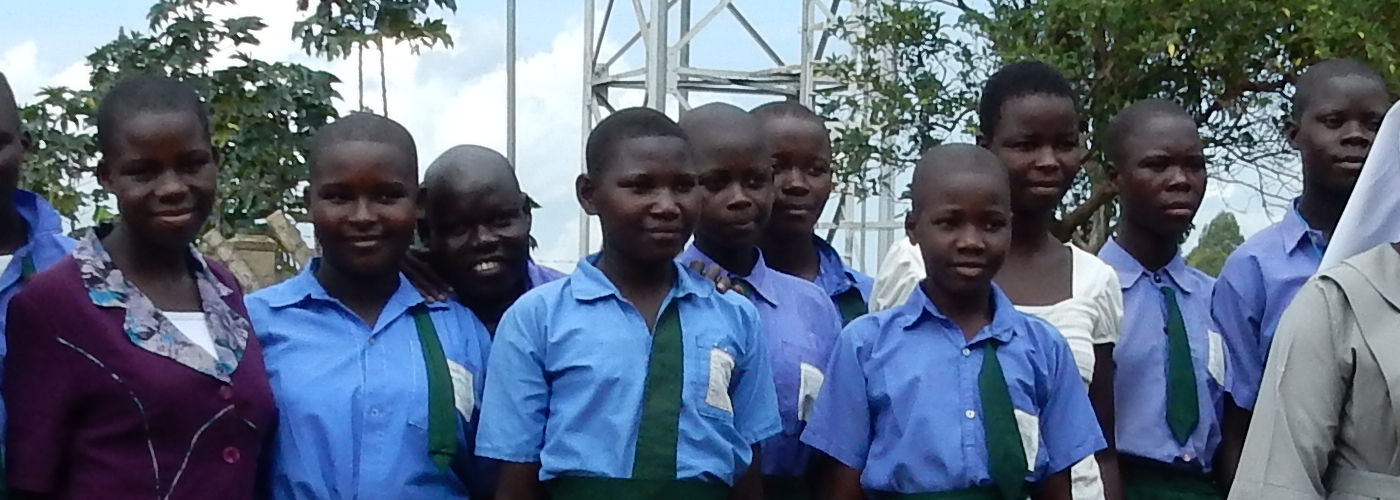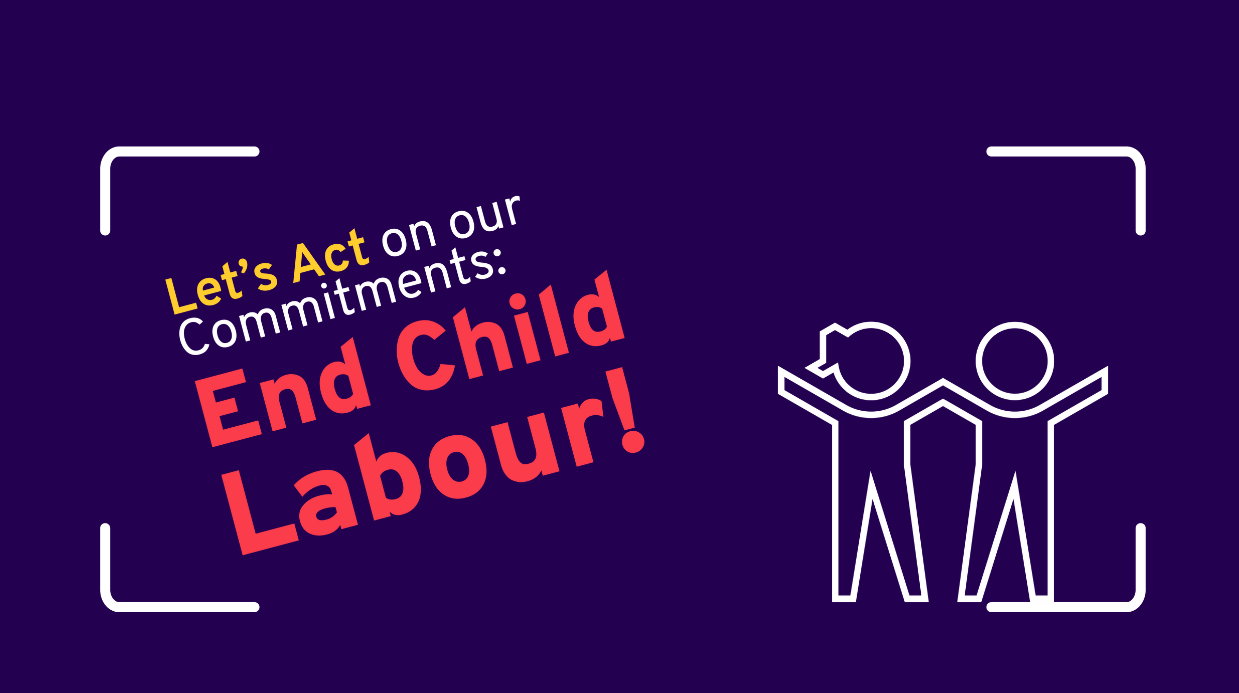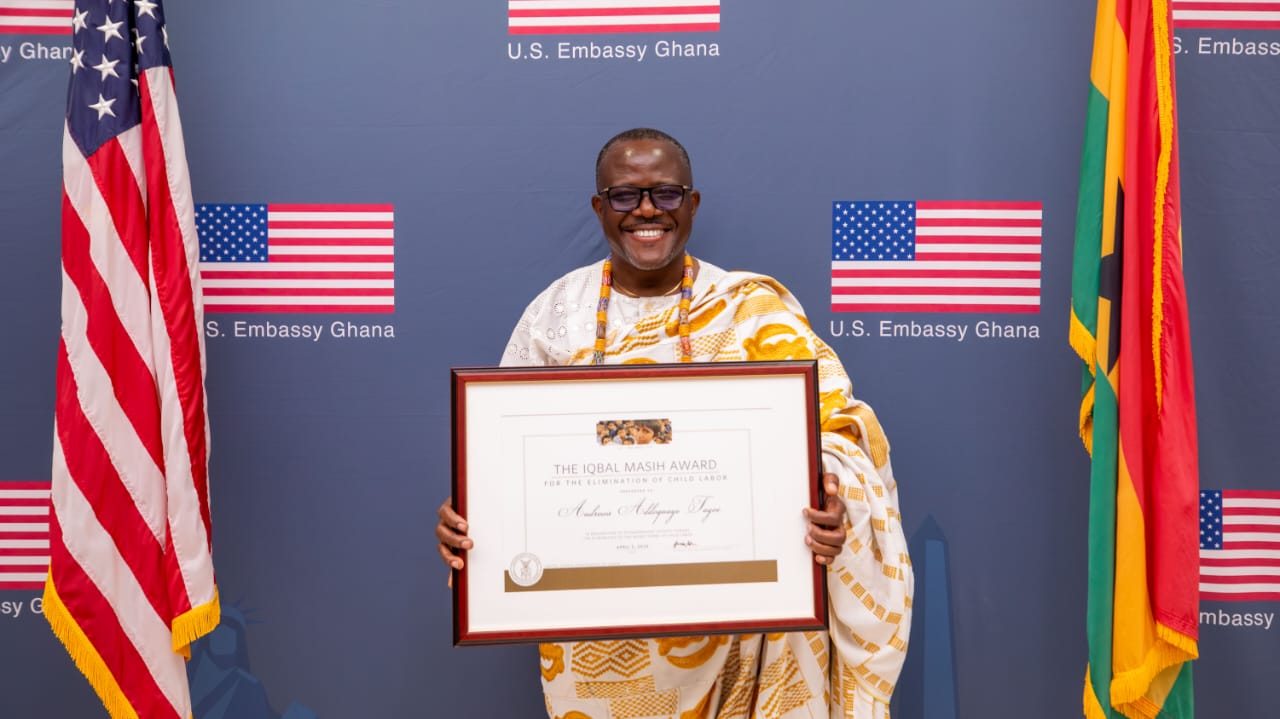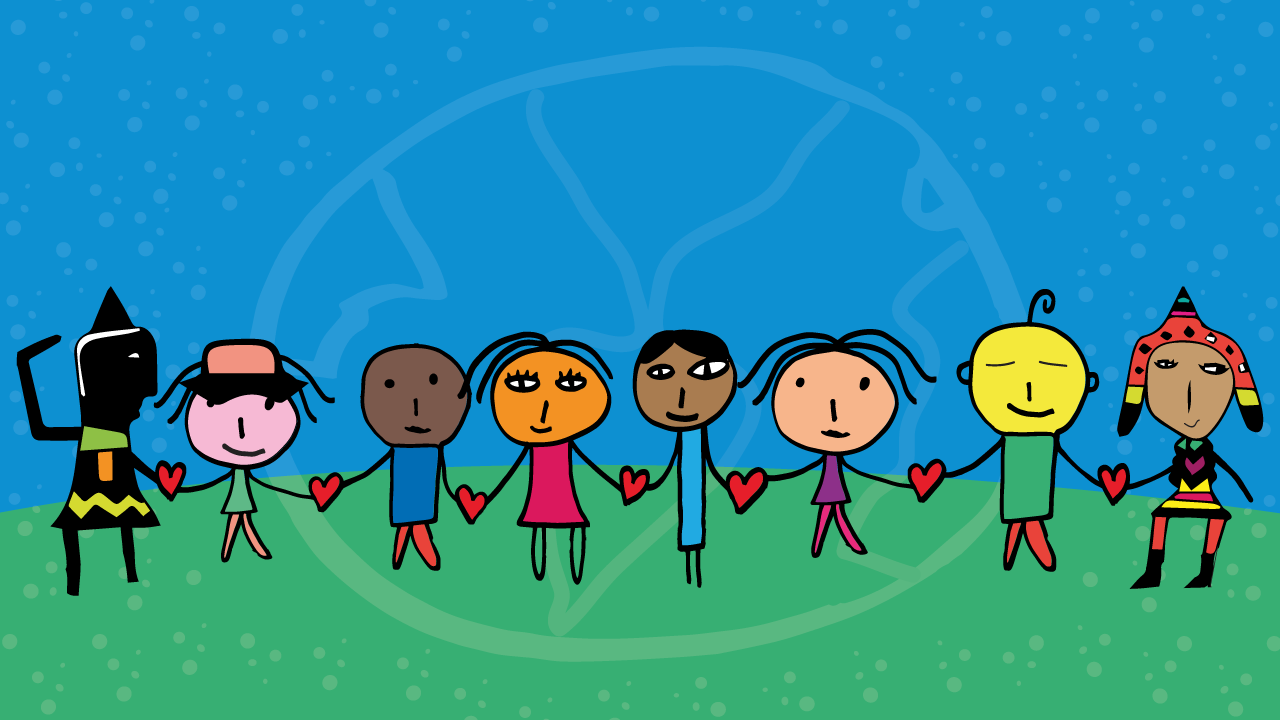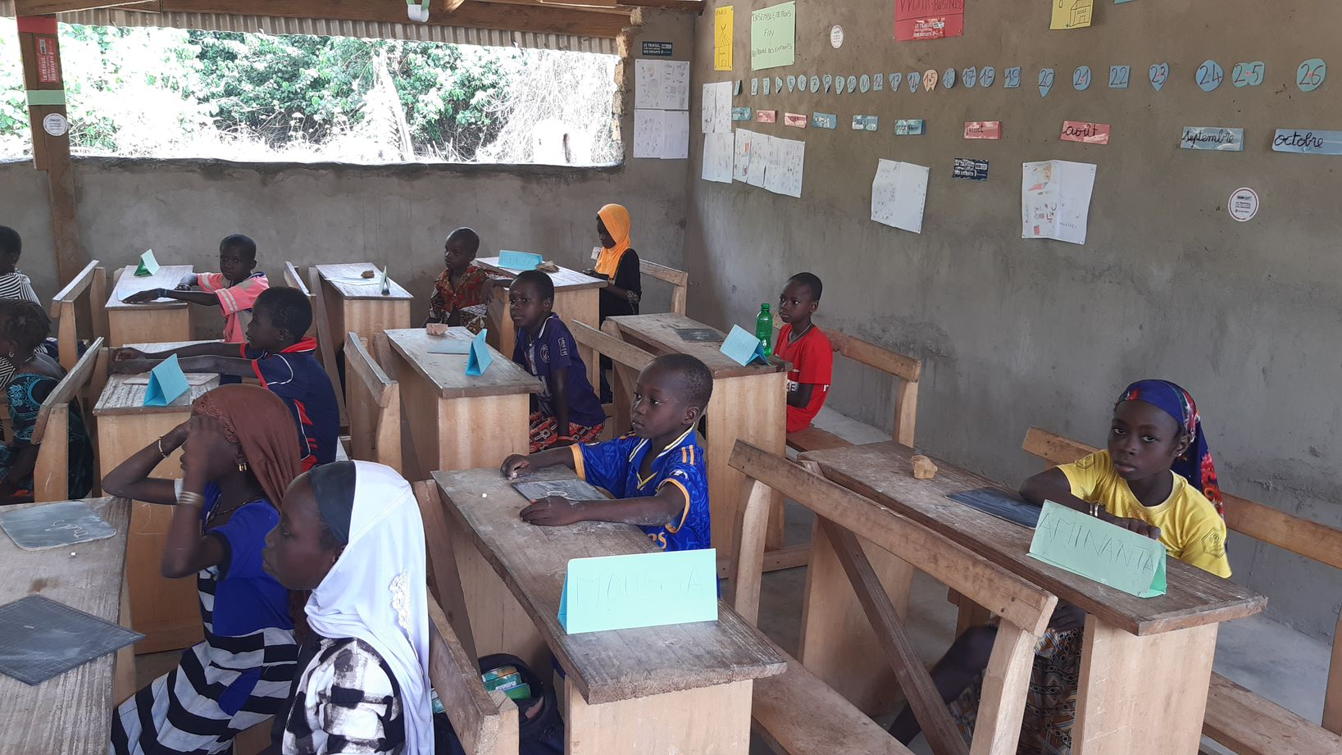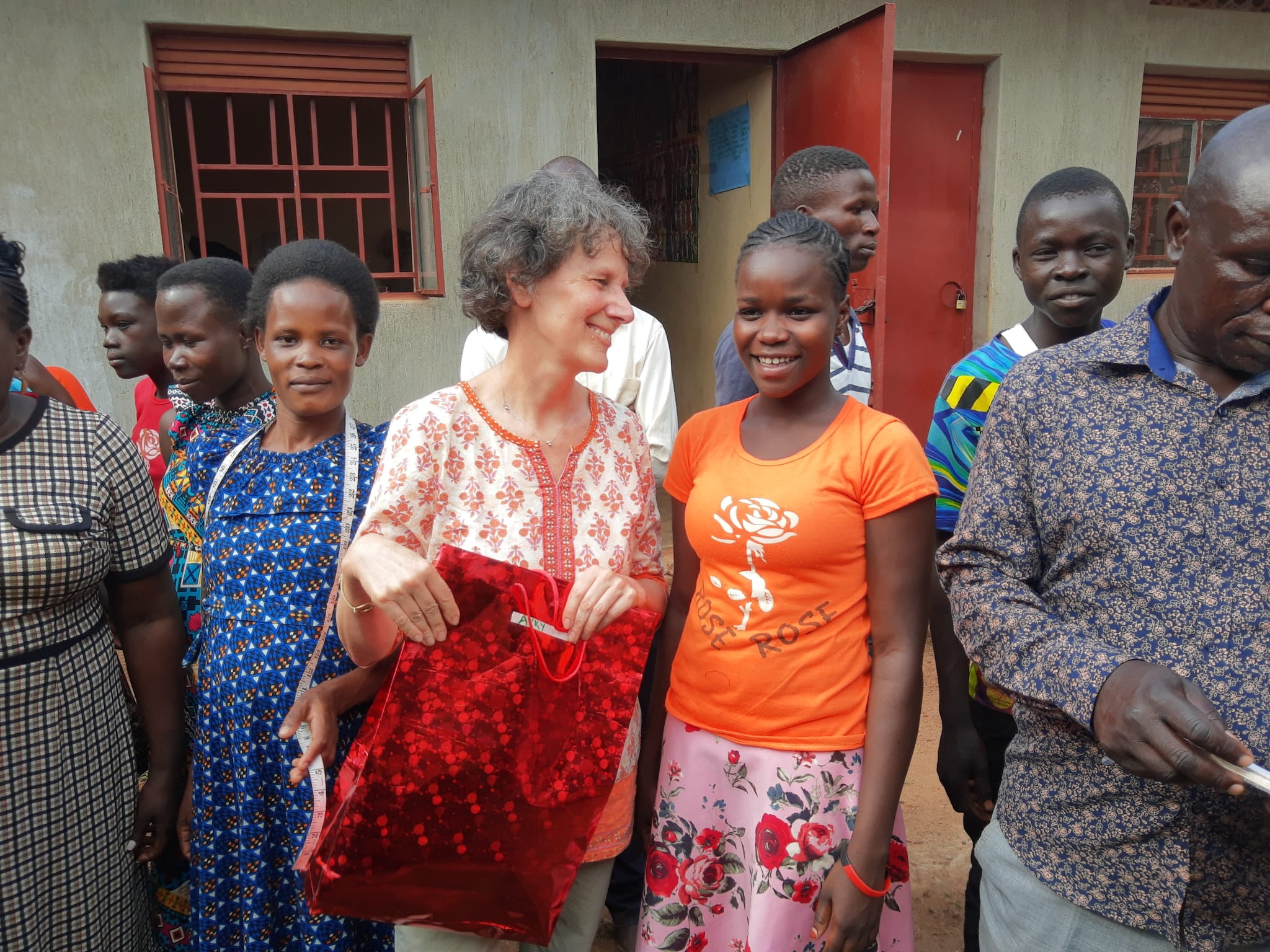We are happy to share the report on the activities executed by Ceford in West Nile, Uganda, a Stop ChildLabour and Hivos partner. We have implemented CLFZ projects with them in the coffee sector with RA, UNATU and EI and Kyagalanyi Coffee Ltd. Some months ago, Hivos provided them with a small grant of almost EUR 5,000 from private donor donations to strengthen CLFZ recovery from the Covid-19 pandemic.
The results show that with engagement between the community, schools and families, a lot can be done during a pandemic such as the current one. This is clearly shown in Erussi primary school, which is in the middle of the CLFZ and has a very active school and headmaster. Sr Mary, member and focal point of UNATU. This engagement has a big influence on the wellbeing of the community and especially on the youth to keep them motivated and on the right track.
Please find below the full report, have a good read!
Progress report on Hivos / Stop Child Labour activities in Erussi sub-county, Nebbi district in West Nile region, Uganda
May 2021
Introduction
Activities implemented
The child labour committee together with the stop child labour partners implemented activities aimed at enhancing awareness, knowledge and skills on child labour remediation:
- Refresher training of child labour committees and community change agents on child labour;
- Review meetings with child labour committees and change agents;
- School visits and documentation of progress within schools;
- Community sensitization and awareness creation on child labour issues;
- Household to household mapping of the child labour situation and providing remedy by taking children back to school.
Outputs
- So far 76 (44 girls & 32 boys) have been brought back to school and re-integrated in to the new phase of re-opening of schools;
- Child labour committees’ level of vigilance and patrol has increased with this additional funding boost.
Changes Positive or Negative
- Continued organization and celebration of child labour free week within Erussi sub-county. Even though the celebrations are in a scientific (not mass gathering, just few selected representatives of the community and held indoor) way which is only for sub-county leaders, steering committees, representative of child labour committee in addition to representatives from school management committees and teachers. The coming celebration in October 2021 may be public depending on Covid-19 situation with support of Hivos fund especially in mobilization;
- Plan International, one of the International Non-Governmental Organization (INGO) are using the child labour committee to support on issues of child protection in Ndhew sub-county neighboring Erussi sub-county. The committees are used to create awareness on child rights, gender-based violence and domestic violence but also identify children who dropped out of school such that they are trained and supported in life skills especially for those who got pregnant or married (teenage pregnancy and early marriages);
- Child labour committee continued to engage in income generating activities especially in agriculture to raise income for the group. Enterprises are growing beans and Irish potatoes to support orphan children and child headed families to get back to school;
- Schools reopened in shifts for primary four to primary seven;
- Sub-county and community leaders continue to create awareness on child labour at churches and public places per parishes;
- Arise in cases of teenage pregnancies and early marriages within the community is leading to school dropouts. This is due to inability to acquire basic needs, especially for the girl child as people’s economic activities, especially businesses, disrupted by COVID-19. As a result, parents can hardly buy sanitary materials like pads for girl children in addition to paying school fees.
Table 1: Showing Enrolment of Pupils in the Four Sampled Schools in Erussi from primary Four to Seven before COVID-19 Lockdown and During COVID-19 Phased Reopening of Schools
| Name of school | Status | Primary Four | Primary five | Primary six | Primary seven | Total | Grand Total
|
|||||
| Girls | Boys | Girls | Boys | Girls | Boys | Girls | Boys | Girls | Boys | |||
| Erussi P/S | Before covid | 74 | 82 | 74 | 70 | 23 | 37 | 13 | 22 | 84 | 211 | 395 |
| During covid | 48 | 61 | 47 | 47 | 17 | 26 | 20[1] | 27 | 132 | 161 | 293 | |
| Pajur P/s | Before covid | 89 | 75 | 76 | 80 | 50 | 40 | 20 | 23 | 235 | 218 | 453 |
| During covid | 67 | 48 | 45 | 56 | 28 | 36 | 13 | 22 | 153 | 162 | 315 | |
| Oriw Acwera P/s | Before covid | 75 | 72 | 22 | 53 | 15 | 42 | 6 | 20 | 118 | 187 | 305 |
| During covid | 65 | 65 | 19 | 48 | 12 | 35 | 5 | 17 | 101 | 165 | 266 | |
| Oboth P/s | Before covid | 65 | 63 | 31 | 46 | 19 | 27 | 7 | 23 | 122 | 159 | 281 |
| During covid | 32 | 55 | 21 | 42 | 9 | 22 | 6 | 17 | 68 | 136 | 204 | |
- 1078 (454 girls & 624 boys) pupils from primary four to primary seven enrolled in 4 sampled schools above during covid period phased school reopening. Indicating 42% of the total pupils are girls.
- 1434 (659 girls & 775 boys) pupil from primary four to seven enrolled in 2020 before covid lockdown in the sampled schools. 25% of the total number either dropped out of school or transferred to another school with girls contributing 58% of the total pupils in that situation.
Foot note [1]: Interestingly more girls and boys in P7 have returned during covid in Erussi Primary School, due to the school centrally located and in close proximity of learners to reach; presence of strong child labour committees around the school that carried out awareness, mobilization for learners to return to school; engaging with their learners and other pupils who were interested in learning during lockdown period by supplying them with reading materials; awareness on teenage pregnancies, early marriages especially by CLC and church leaders.
Enabling factors
- Continued support from sub-county local authorities to reduce cases of child labour;
- Presence of strong child labour committees at least per village working on child labour remediation;
- Presence of Village Savings and Loan Associations (VSLAs) that continues to bring together members of the child labour committee and provides financial access for the parents to support their children education;
- Presence of community change agents who are residents of the same communities where the Stop Child Labour project is implemented. They provide technical backstopping support on child labour especially in guidance and counselling, development and implementation of child labour eradication plans etc.;
- Changes in Uganda school calendar (due to Covid-19 measures) which cannot be predicted by the schools, learners and parents on when it will begin and when it ends. Ad hoc in nature;
- Phased reopening of schools and shift class teaching methodology developed by ministry of education to enable learners return to school in phases per class and shift lessons (small unit classes) conducted for classes with large numbers to avoid overcrowding within the classes and schools. Currently primary four to seven have been in school;
- Continued support from Hivos additional fund to support and sustain the social structures, like child labour committees and community Change Agents.
Best practices.
Use of talking compounds to disseminate pro-school information. This is to create awareness and attract learners back to schools.
Use of school clubs, like music, dance and drama, debating and sports to attract learners within the school and also pass anti-child labour messages.
Challenges
- Inability by most parents to pay school dues for their children given the fact that most people have lost their employment and business enterprises due to COVID-19;
- Difficulty by pupils to interface and consult their teachers after classes as teachers are on shift and in most cases, after teaching they move home to avoid congestions within the staff room and school compound. It will be solved through remedial teaching that the schools are trying to arrange for all the learners to catch up with the lost time with more emphasis on children who were in child labour.
Prepared by Okaya John Bosco (CEFORD)
*Picture: Out of child labour and into school children, attending classes with other pupils in Erussi primary school, during the phased reopening of schools in Uganda.

